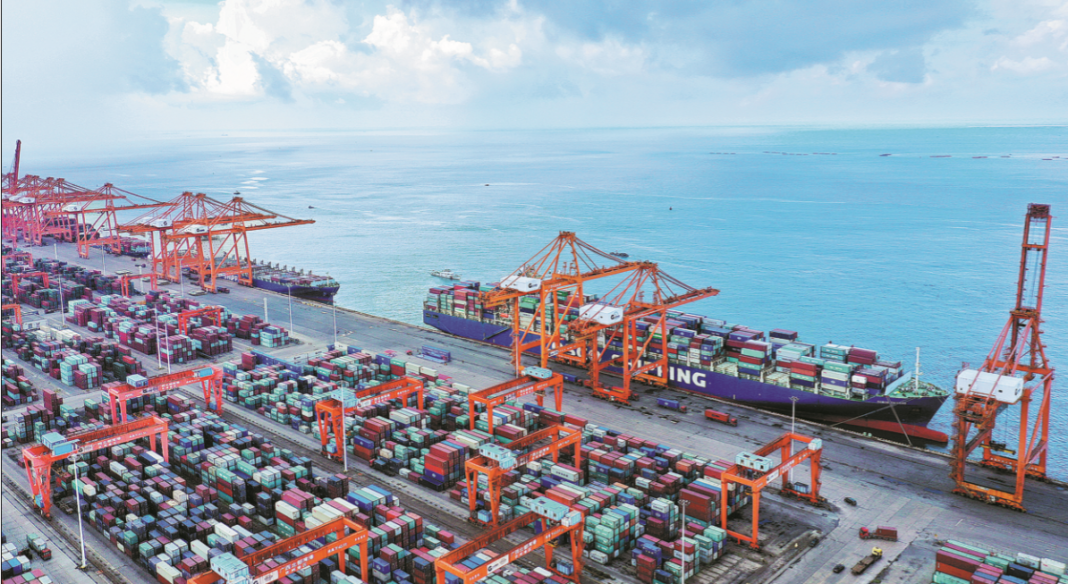BEIJING: “Accept my invitation to Temu to help me get my gift!” If you have ever received this invitation link from your friends, congratulations! You are now a “team” member of online marketplace Temu, whose name is derived from its slogan—Team Up, Price Down.
Temu, launched in September 2022, is the U.S. edition of Pinduoduo, a Chinese online shopping platform that sells everything from groceries and home appliances to iPhones and the largest e-commerce player in China in terms of registered users. Pinduoduo offers consumers items at lower prices or even for free—if they can find enough friends to click the links they share. The business model copied from China has now found early success in the overseas market.
Similarly, watching short videos by swiping up or down has turned into a globally prevalent viewing habit thanks to the popularity of TikTok, the international version of Chinese short video app Douyin. The imported application currently rivals U.S. domestic giants such as Instagram and Facebook in downloads and YouTube in average usage time, according to data analysis providers Data.ai and Sensor Tower.
And the list goes on. As of April 2022, Chinese fast-fashion app SHEIN had surpassed its closest competitors, Uniqlo and Zara, in terms of market value. The app now has more downloads in the U.S. than Amazon. Then there’s Genshin Impact, an open-world action role-playing game, owned by Chinese online video game developer miHoYo, which has generated more than $4 billion from global user spending since its launch in September 2020… Chinese digital platforms are fully exploring overseas markets.
China’s platform economy, defined as the transfer of economic and social activity—which had previously been conducted primarily offline—into the digital realm, is the largest in the world not only in raw numbers but also in terms of the proportion of the country’s population.
Nevertheless, since 2021, the chaotic business practices of some platform companies, such as abuse of dominant market positions and privacy and data security breaches, had led to industry-wide regulatory crackdowns. In more than one year, many online platforms, voluntarily or not, slowed their expansion and conducted internal overhauls. One example here was that of ride-hailing service provider Didi: In July 2021, the Cyberspace Administration of China ordered app stores to remove the Didi app from their list of offerings, citing data breaches. “Verified complaints showed that Didi has seriously violated laws and regulations in its collection and use of personal information,” the regulator said in a statement.An upturn emerged as policies kept rolling out in support of the platform economy since 2022. The growth rate of China’s platform economy slowed down over the past three years due to a range of factors, including online population peaking, downward pressure on the economy, tightened government supervision and an uncertain global environment, Zhang Chunfei, a researcher with the Policy and Economic Research Institute under the China Academy of Information and Communications Technology (CAICT), wrote in an article published on China Daily on December 26.
–The Daily Mail-Beijing Review news excahnge item





